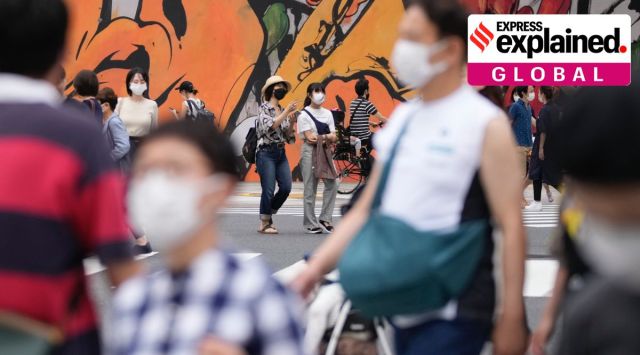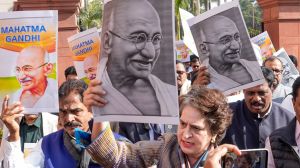Spurred by the decline in revenue collections, the Japanese government is inviting its youngsters to come up with ways to promote liquor consumption in the country.
In a competition, ‘Sake Viva’, culminating in November, the National Tax Agency of Japan has invited people to submit business plans to promote Japanese alcoholic beverages such as sake, shochu, awamori, beer and more.

While the initiative generated a buzz online, it also raised ethical questions about promoting an unhealthy habit.
We take a look at Japan’s liquor sector and what prompted the need for the competition.
Why does Japan feel the need to promote alcohol?
Japan’s liquor industry has been on a decline. According to a report by the National Tax Agency, in FY 2020, the tax on liquor comprised 1.9 per cent of the overall collections. In comparison to this, in FY 2010, liquor tax made up 3.3 per cent of overall tax collections, and in 2000, it accounted for 3.6 per cent of total collections. In 1994, liquor tax made up 4.1 per cent of total tax collections.
Data from two decades (2000-2020) show that the amount of tax collected on alcohol and the volume of sales (consumption) has gone down in Japan (see chart below). In 2000, the tax collected on liquor stood at 1,758,800 million Yen and the volume of sales or consumption was 9,519,513 kL. In 2020, however, the government collected 1,068,100 million Yen tax on liquor, while the consumption was 7,827,698 kL.
In a 2021 report, the National Tax Agency states that “the taxable volume of liquor has declined since it peaked in 1999”, notably for beer, which over the years was the most consumed taxable liquor product. The report notes that there has been a shift in consumption habits, with drinkers preferring low-priced liquor, such as sparkling liquor, chuhai and beer-like products, over beer. The Covid-19 pandemic, too, led to a decline in domestic liquor consumption, especially at restaurants, due to the lockdown.
Story continues below this ad
In Japan, the liquor industry contributes to regional economies and the growth of small to medium enterprises which dominate liquor production in the country.
While the country’s economy regained its pre-pandemic size earlier this week, concerns remain over its continued recovery. Private consumption increased since the easing of lockdowns, a Reuters report stated. However, price hikes might deter people from spending on “leisure and dine-outs”, it said.
Apart from the impact of the coronavirus pandemic, “demographic changes such as declining birthrate and ageing population” have also contributed to the shrinking of the alcohol beverage industry in Japan, according to the Sake Viva’s website.
Indeed, Japan’s population is greying. A 2020 International Monetary Fund (IMF) report states, “With a median age of 48.4 years, Japan’s population is the world’s oldest.” Moreover, Japan’s current population of 127 million is also expected to shrink by a quarter by 2060.
Story continues below this ad
So, what does ‘Sake Viva’ aim to do?
According to its website, individuals aged between 20 and 39 can submit business plans to “revitalise” the liquor industry in Japan. The competition invites entries from across countries, and entries are open till September 9. The selected business plans will then take part in a tournament in Tokyo on November 10.
The National Tax Agency, the organiser of the competition, is looking for ways to promote a range of alcoholic beverages and “stimulate demand among young people.” It’s open to ideas that cater to lifestyle changes following the Covid-19 pandemic and inculcate the use of artificial intelligence and metaverse to drive sales.
The competition comes amid a series of measures undertaken by the Japanese government to promote its alcohol industry, such as nationwide online festivals for wine and craft beer, awareness campaigns about local liquors, establishing an online registry of breweries, promoting sake internally and overseas, and expanding exports.
Japan’s Sake Viva competition raises health concerns
The announcement of the competition has raised concerns about promoting an unhealthy habit. According to Bloomberg, Japan’s Health Ministry has said it “understood the spirit of the promotion was in line with its view that people should ‘drink responsibly’.”
Story continues below this ad
The National Tax Agency, too, stated that it was not “encouraging people to drink excessively” and the competition was purely meant to stimulate economic growth, Bloomberg reported.
In June, The Asahi Shimbun, a Japanese daily, published the findings of a survey conducted by Kyoto University, which showed that alcohol-related diseases and the risk of addiction associated with at-home consumption of alcoholic beverages increased during the pandemic.
“The rate of people hospitalised for alcohol-related liver diseases or pancreatitis from April to June 2020 was about 1.2 times higher than before the novel coronavirus pandemic,” the survey found.








































